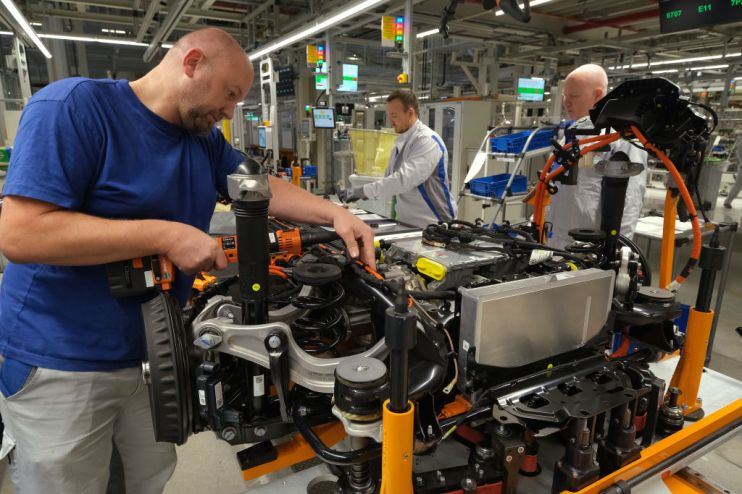German e-car boom will hit 178,000 workers unless companies focus on re-skilling

The electric cars boom will hit 178,000 workers in Germany unless companies gear up efforts to re-skill their employees, a report has shown today.
The country’s auto industry will suffer more employees retiring than the labour market can keep up within the coming years, the Ifo institute said.
With battery-driven cars requiring less assembly work than combustion engine vehicles, the slide towards electric vehicles means companies must now tackle the risk of miss-match unemployment and re-train employees.
“Developments in production figures are already showing us that very different parts are needed for electric cars than for combustion engines. However, this transformation has yet to manifest to the same degree in headcount,” director of the Ifo Center for Industrial Organisation and New Technologies, Oliver Falck, said.
Warning of the shrinking output of combustion engines, the Munich-based institute estimated that around 75,000 German production workers will retire by 2025.
If, by 2025, the production of cars powered by combustion engines matches its forecast decline under current emissions regulations, then the switch to electric motors will hit at least 178,000 employees.
President of Ifo, Clemens Fuest, said: “The transition to electromobility is a major challenge, especially for automotive suppliers, where medium-sized companies are dominant.
“It’s important to maintain highly skilled jobs in the remaining production of combustion engines and in electric vehicles without putting the brakes on structural change.”
Falck added that “the transformation that can be expected in headcount won’t be fully cushioned by the retirement of the baby boomers,” and urged auto companies to act on re-skilling their workers.
“Since companies are already aware of this gap, they have the opportunity to take appropriate measures in good time, such as retraining and further training.”